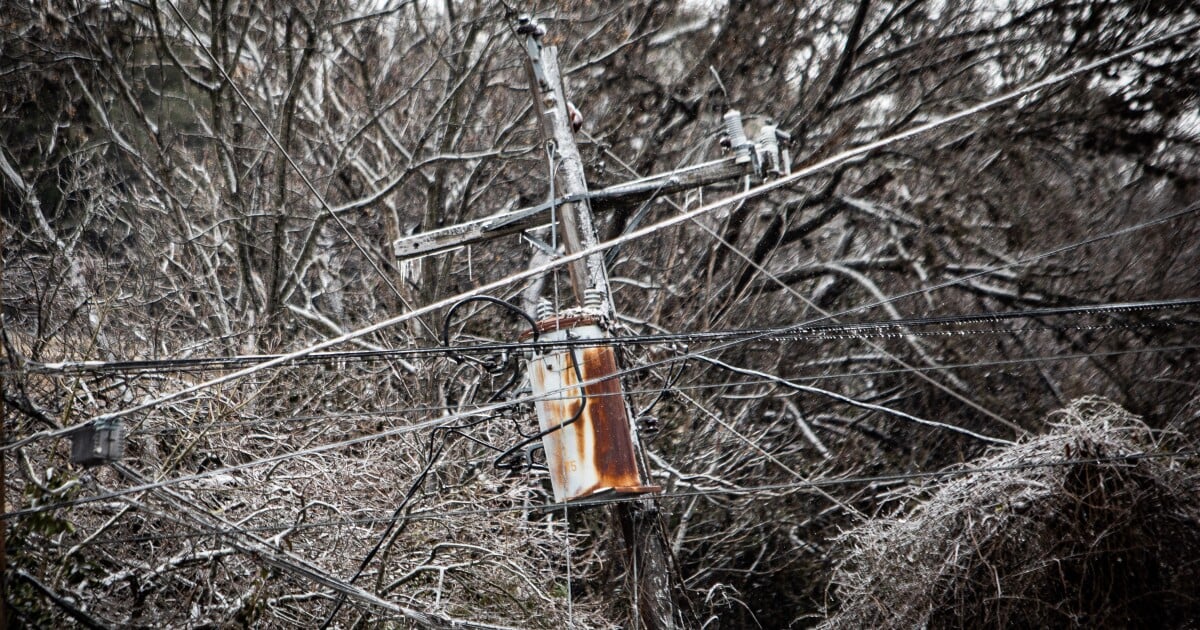Almost three years since the deadly Texas blackout of 2021, a panel of judges from the First Court of Appeals in Houston has ruled that big power companies cannot be held liable for failure to provide electricity during the crisis. The reason is Texas’ deregulated energy market.
The decision seems likely to protect the companies from lawsuits filed against them after the blackout. It leaves the families of those who died unsure where next to seek justice.
In February of 2021, a massive cold front descended on Texas, bringing days of ice and snow. The weather increased energy demand and reduced supply by freezing up power generators and the state’s natural gas supply chain. This led to a blackout that left millions of Texans without energy for nearly a week.
The state has said almost 250 people died because of the winter storm and blackout, but some analysts call that a serious undercount.



Corporations are people, my friend. Just people with all the rights and no responsibilities.
Yeah … SCOTUS.
If there are no people, there is no company. If there are no companies, people will survive.
That takes care of whatever stupidity SCOTUS was thinking when they made companies and people equal.
They’re not even equal. Corporations are given more freedom than actual people.
You can’t arrest a company. You apparently can’t even arrest the company’s executives for the company’s crimes.
I really want to figure out how to make a company and sell it all my debt.
It’s called the Texas two step.
You file business papers in Texas and open an account there.
You use that business to buy all your underwater assets and other liabilities, leaving you free and clear. Then you declare bankruptcy with your Texas company, wiping out the debts. It what you do when grandpappy and the old board sold asbestos to everyone and their kids and now that you’re in charge you just want that to go away so you can enjoy your trust fund without fear of any destitute widows or their children trying to take any of it.
In any normal state, this is treated as a sham transaction or a straw purchase and is void ab initio. In Texas though, as a handout to the mining, chemical, and business insurance industries, you can follow none of the corporate formalities needed anywhere else to preserve your corporate viel, and just declare that your company is now two, unrelated companies, sort of like that movie Twins where, even though they are genetically identical and born at the same time from the same parents, one of the newborn companies has all the good stuff and the other has all the crap, and you can pretend it was separated at birth, like it never even existed. And that’s how you do the Texas two step. Step three actually is profit.
You set up a company A. You also make a consultant company B. Company A hires very highly paid consultants from company B. Meanwhile you make paintings. You sell those paintings to company B at high prices with the money you got from company A. Now your debts are gone and company A is in debt. Fold company A and B. Add in some shell companies in the Bahamas if needed.
But, you need to have enough money to set up companies, have expensive accountants and lawyers, and to pay off some officials. You’ll have to be rich to become more rich basically.
Don’t follow this advice, it’s just fiction.
Were you born to rich parents?
Sadly no, I’ve been bootstrapping it.
You’re probably out of luck.
And no taxes or very little.
Corporate taxes are a regressive tax on the poor. There’s no benefit to taxing a business instead of people directly, and serious harm caused.
Taxing Amazon doesn’t hurt Jeff Bezos. It just makes products more expensive for people that already struggle to afford them. It doesn’t even effect Amazon’s profit margin.
It’s the structure of taxing that is the problem. If we tax their holdings or assets, tax the fuck out of their stocks exchanges. Force business to do business and make hording too expensive. Companies with billions in cash sitting in offshore bank accounts is disgusting and should be abolished.
This is how businesses grow, though. Having cash on hand is extremely important, and the amount necessary scales with the size of the business. It’s effectively overhead.
All of these ideas make things more expensive for poor people for no reason.
I don’t think you understand how much money big corporations hoard. Investment isn’t what I am talking about. Pure cash holdings, it’s really not normally done like this.
I literally worked for a fortune 100 company. I know exactly how much, because they report on it internally, especially during big shit like COVID.
There’s nothing wrong with a company having money in the bank. That’s an extremely good thing, especially for financial and tech companies.
I don’t know why people hate companies making money at all. If individual people are making more money than is good for society, tax then. If Jeff Bezos owning Amazon pisses you off, carve you off a slice. No issue there.
Taxing companies makes the lives of poor people harder, so I’m against that.